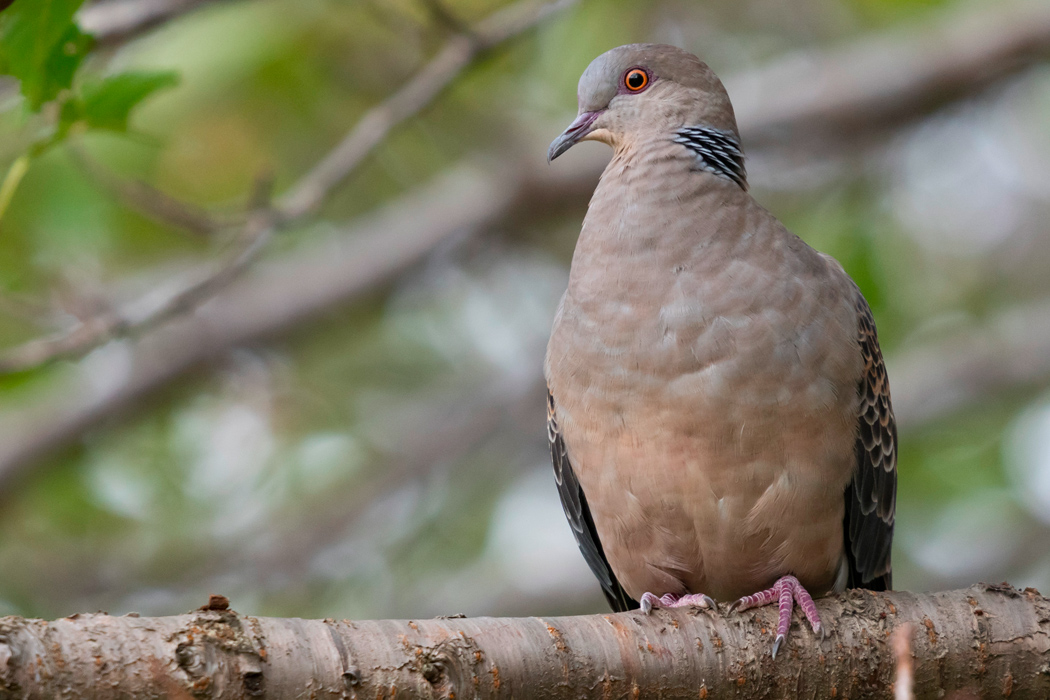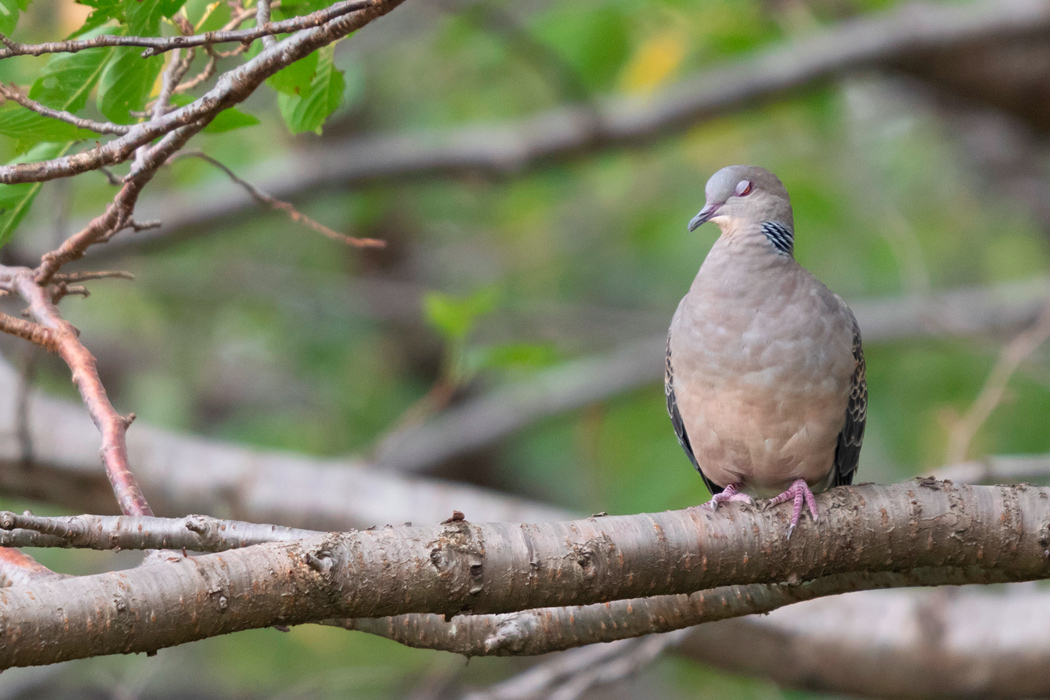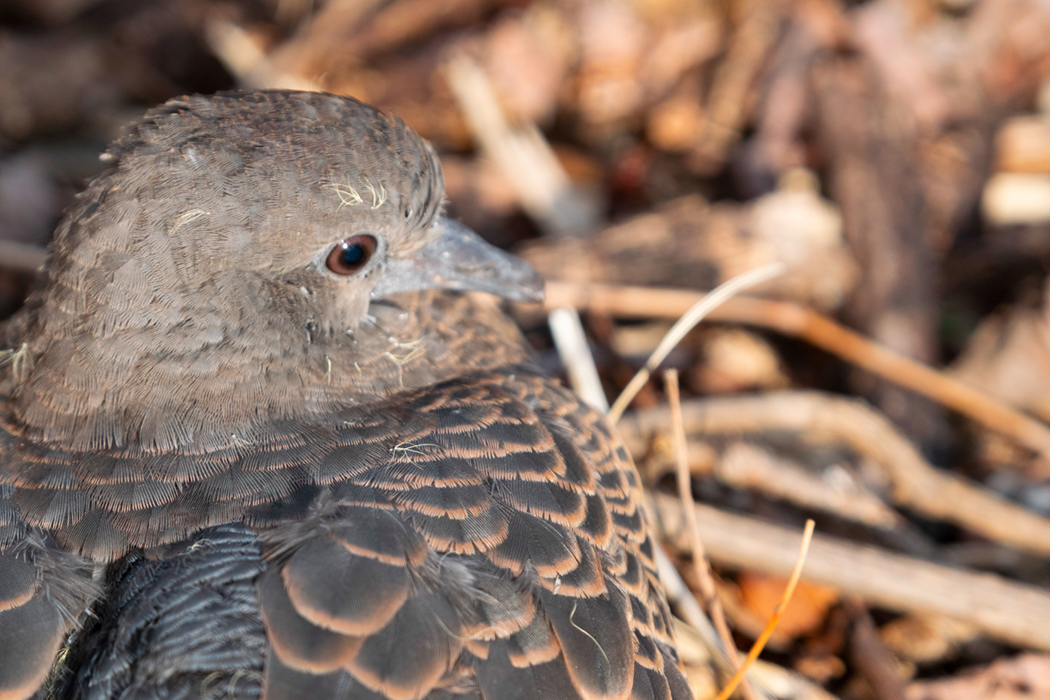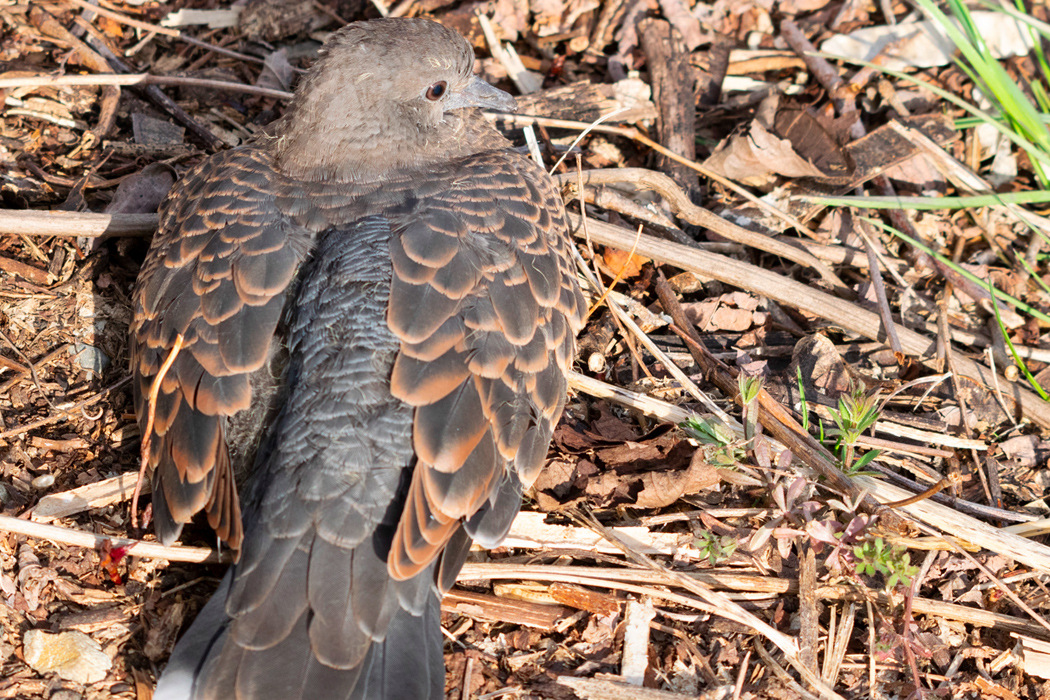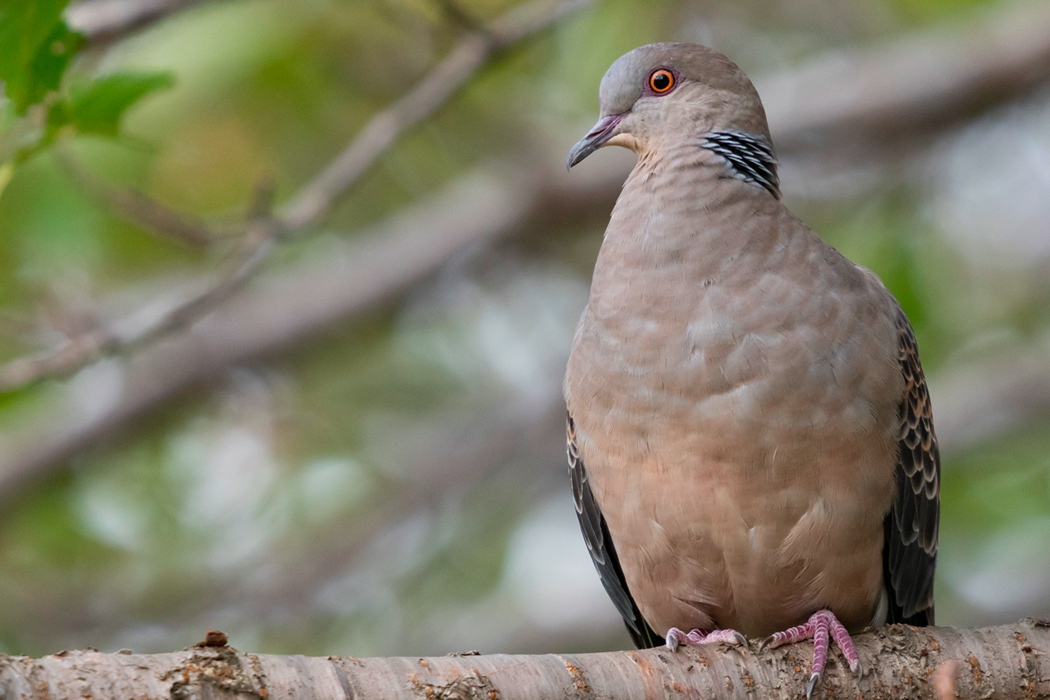
Oriental Turtle Dove
Crying "de de po po"
| Scientific name | Streptopelia orientalis |
| English name | Oriental Turtle Dove |
| Japanese name | 雉鳩 |
| Classification | Aves |
| Classification details | Columbiformes Columbidae |
| Full length | about 33cm |
| Distribution | Eastern Eurasia |
Characteristics
A pigeon that is characterized by a cry called "de de po po". It is called Turtle Dove because its scale-like wings are likened to a pheasant. There is also a pattern at the base of the neck. The whole body is plain gray. The wings are brown. The iris is reddish.
Another name is Yamabato. This is because they used to live in mountains, but now they are not afraid of humans and can even see human settlements.
Calls
The chirping is the repetition of "Dede poppo" that everyone has heard. It's pretty loud and sticks in my ears.
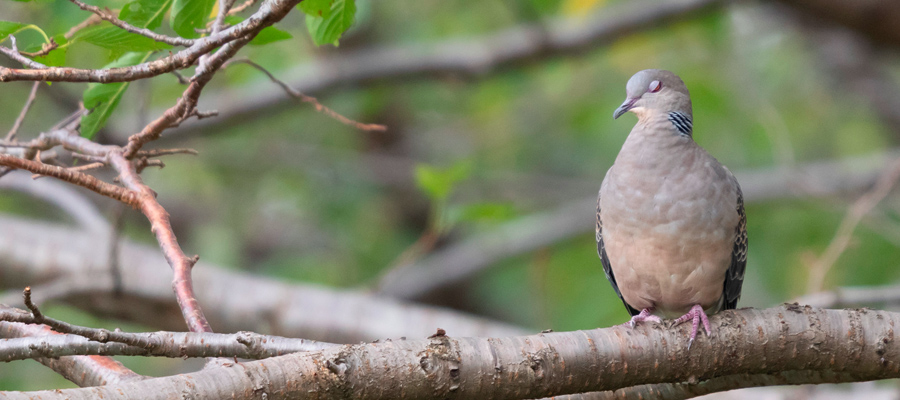
Ecology
Widely inhabits from mountains to plains. They are omnivores and eat pretty much anything, including plant seeds and insects. They often move in pairs, and sometimes two perch on a power line. It is the male that chirps with a characteristic voice.
Breeds by constructing nests of twigs not only on trees but also on man-made structures. Eggs are laid and hatch in about 15 days, and leave the nest in about 15 days.
Habitat
I photographed Yamabato in Katakura Castle Site Park, Hachioji City.
Yamabato is quite courageous, and when it is quietly chasing other wild birds, it does not run away even if it gets very close. It's not that they're unaware of humans, but it gives the impression that they're probably sitting still, assuming they won't harm them.
When I hear a male singing on a summer morning, I can't help but feel that it's summer.
Video
The video
of the Turtle Dove.
resting on a branch.
Pictures
Introducing a picture of Oriental Turtle Dove.

Picture book

Orbicular batfish
Juveniles camouflage on dead leaves.......ead more.

Japanese black porgy
Also known as "Chinu" in fishing, it is popular.......ead more.
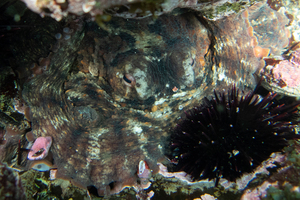
East Asian Common octopus
Change body color to mimic.......ead more.

Long-tailed Rosefinch
The red color of the male shines in the river bed......ead more.

Straight Swift
Hind wings lined with silver stripes.......ead more.
